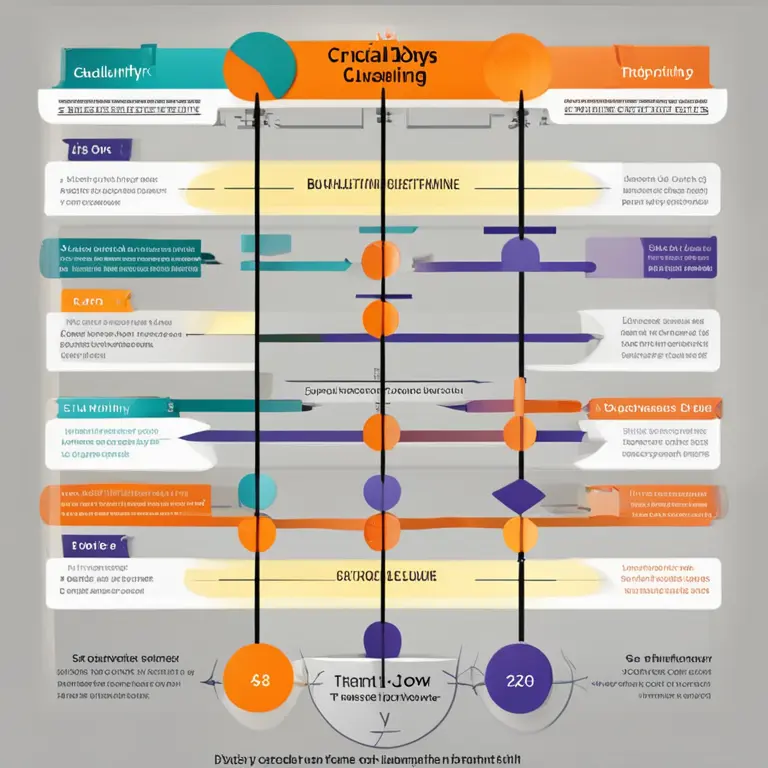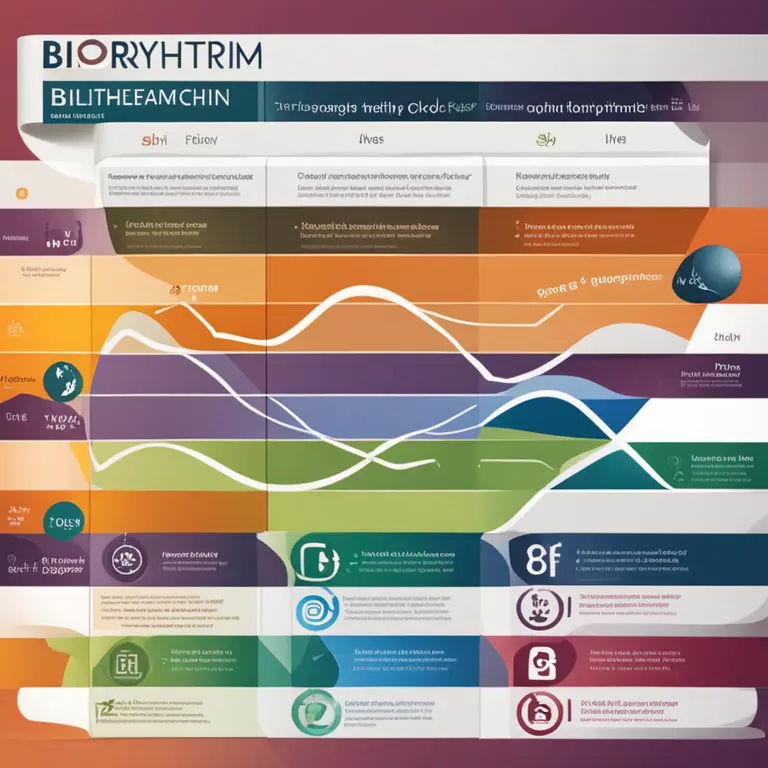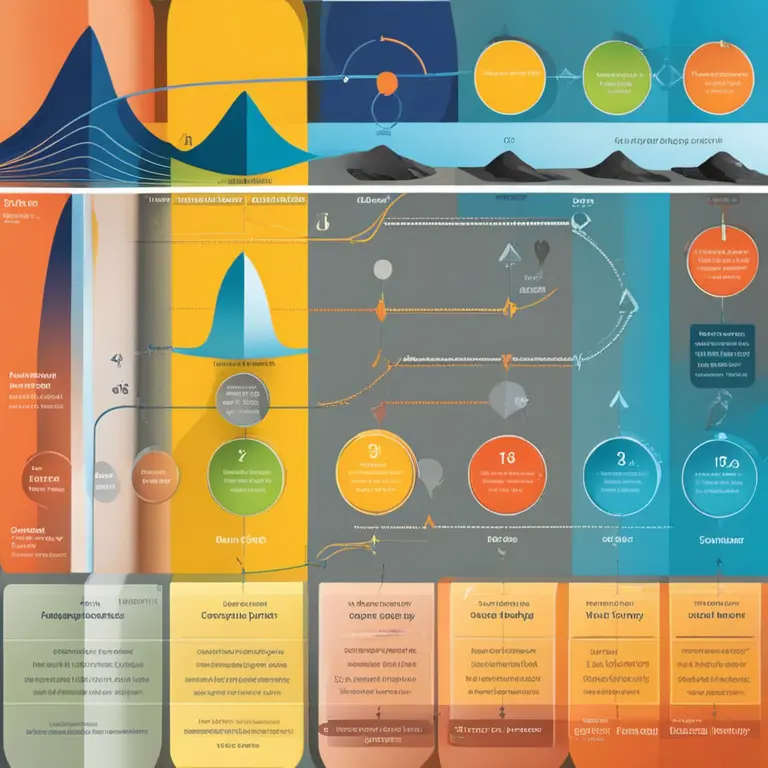
Calculating Biorhythm Cycles: A Mathematical Approach
Delve into the mathematics behind biorhythm cycles and understand how they impact our daily lives in this detailed exploration.
article by Adrian Wallace
The Foundations of Biorhythm Theory
Biorhythm theory is hinged on the belief that three fundamental cycles influence our physical, emotional, and intellectual abilities. These cycles are thought to begin at birth and oscillate in predictable patterns throughout our life. The physical cycle, said to last 23 days, influences our strength, health, and raw physical energy. The emotional biorhythm, with a 28-day cycle, affects mood, creativity, and perception. Lastly, the intellectual cycle lasts 33 days, bearing on analytical thinking, logic, and cognitive processes. Together, these rhythms are believed to shape our daily performance and well-being.

Mathematical Modeling of Biorhythms
To model these biorhythms, mathematicians use the sine wave function from trigonometry—a smooth, periodic oscillation. The model calculates the biorhythm for any given day as a function of time since birth. For example, the physical biorhythm sine wave might be calculated as (\sin(2\pi t/23)), where (t) is the number of days since birth. This sine function gives values ranging from -1 to 1, which correspond to the high and low points of the cycle respectively. The point of zero is considered a critical transition period.

Calculating Crucial Days
One of the critical aspects of biorhythm theory is pinpointing days when one might be prone to accidents or mistakes—often the days when a cycle crosses the zero line, marking a transition from high to low, or vice versa. Mathematically, this zero-crossing is found by solving the sine equation for the zero value, which typically involves an inverse trigonometric function. Keeping track of such transitions in the three cycles can provide insights, according to enthusiasts, into periods of increased risk or opportunity.

Interpreting The Cycles
Interpreting these biorhythm calculations is about more than just knowing the position in the cycle; it's about understanding the interplay between them. When multiple cycles are in their high phase, an individual might feel at their peak. Conversely, when all three are low or crossing zero around the same period, an individual might exercise caution. This interplay shapes the complex biorhythm profile that adherents use to plan their activities or evaluate their current state.
Precision and Personalization
To ensure precision in biorhythm calculations, it's crucial to have an accurate birth time. As these cycles are set to begin at the moment of birth, even small inaccuracies can result in significant errors over time. Software and online calculators now offer personalized biorhythm charts, contributing to the popularity of this theory. These tools employ the same mathematical principles to automate the calculation process for individual analysis.
Biorhythm Applications
Advocates for biorhythm theory apply these calculations in many fields, from sports training to psychology. For example, an athlete might schedule training intensity according to physical cycle predictions, while a counselor could be alert to emotional cycle transitions during therapy. Biorhythm calculations also find their niche in relationship counseling, where partners' cycles are compared for harmony or discord.
The Skeptical Viewpoint
Despite its popularity, it's important to note that biorhythm theory is met with skepticism from the scientific community. Critics argue there is insufficient empirical evidence to support the assertion that these cycles accurately predict daily capabilities or outcomes. Furthermore, the theory is often classified as a pseudoscience as it lacks falsifiability—a key principle in the scientific method. Nevertheless, biorhythm theory maintains a following and continues to intrigue those fascinated by the rhythms of life.
Published: 1/25/2024
Modified: 1/25/2024
More predictions
Come back here soon to learn more about yourself and your future


The Human Biorhythm Cycle: Patterns of Life's Ebb & Flow
Delve into the human biorhythm cycle, a compelling concept in the holistic understanding of our physiological and emotional patterns over time.


The Intersection of Biorhythms & Astrology Explored
Discover the link between biorhythms and astrology to gain insights into your life's patterns and potential.


The Biorhythm Debate: Effective Insight or Myth?
Discover the realities behind biorhythms, how they're calculated, and their impact on daily life. Can these biological cycles truly predict our physical, emotional, and intellectual states?